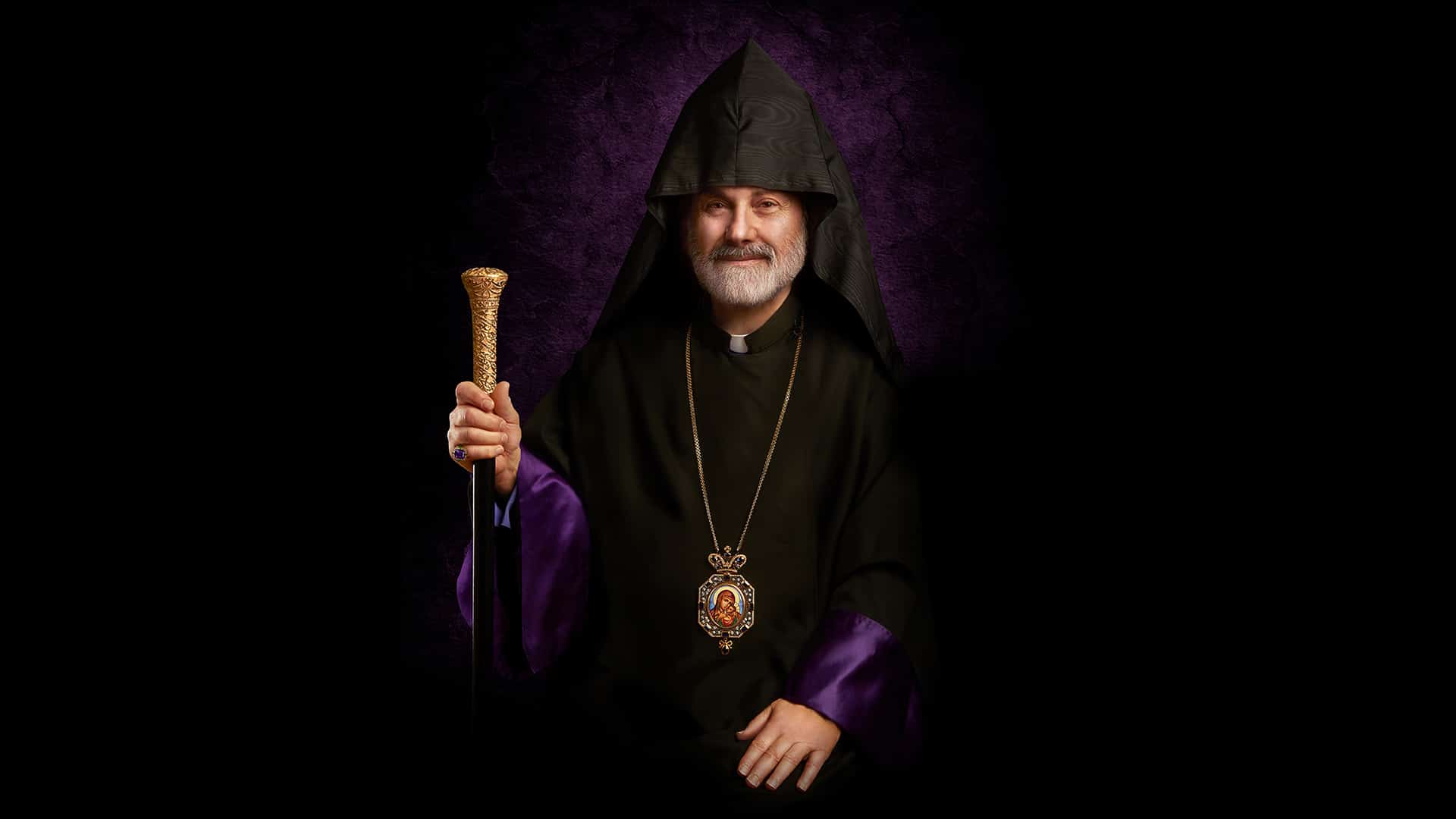The Prelate’s Message (July 4, 2021)
Today according to the Armenian Church Calendar is the seventh Sunday of Pentecost. We are enjoying the season of daily Bible readings from the Gospel according to Matthew, and today’s reading is from chapter 14:13-21.
This passage is quite familiar to all of us because it narrates one of the most fascinating miracles Jesus did by blessing five loaves and two fishes, and feeding five thousand people who had followed Him into the desert.
As much as this miracle is astonishing as a supernatural phenomenon, yet it carries amazing details that concern us, and I believe that Jesus Himself wants us to focus on them.
- It is true that the crowd followed Jesus so that He might heal their beloved ones from their sicknesses. Yet spending such a long time to hear His teaching in a remote place, free from daily worries such as eating, is remarkable. One of the strategic themes in both the Old and New Testaments is the Word, i.e. the Wisdom, the Commandments, the Teaching of God. In the course of the previous Sunday readings, we were introduced to a very crucial truth that the queen of the South came to listen to the Wisdom of Solomon, and yet there is something greater than Solomon to see (Mt 12:42). Jesus identified Himself as the Bread of life (Jn 6:35), thus we may conclude that whenever and wherever we follow to seek Jesus, He can heal us, release us from our worries, and take care of our needs. And this fact brings us to the second point of our meditation.
- When we are in the presence of God, our priorities very interestingly might be changed. Indeed, the healing of the sick was the motive of many to seek after Christ; nevertheless, once their expectation was fulfilled, they spent the whole day to hear His word and to enjoy something which transcends all material and worldly interests. When, in another incident, Martha complained of her sister’s carelessness, Jesus said “Martha, Martha, you are worried and distracted by many things; there is need of only one thing. Mary has chosen the better part, which will not be taken away from her” (Lk 10:41). Emphasizing the fact that Mary has chosen the “better part”, Jesus was not ignoring Martha’s concern, yet gently He directed her to change her perspective and to evaluate the difference between the temporary and the eternal. Jesus said at the beginning of His ministry, “Your heavenly Father knows that you need all these things. But strive first for the kingdom of God” (Mt 6:33). This brings us to our third point of our today’s spiritual nourishment.
- The apostles, noticing that the day was growing late, ask the Lord to dismiss the crowd so that they could buy something from the nearby villages. Jesus, to their astonishment, answers, “They need not go away; you give them something to eat.” Was this the response of a sane person?! The apostles were more perplexed, until the Master asked them what they had to eat for themselves. They replied two fishes and five loaves of bread. Jesus then told them to bring the bread and the fish, and to invite the crowd to sit on the grass.
The Evangelist narrates that “Jesus, taking the five loaves and the two fish, he looked up to heaven, and blessed and broke the loaves, and gave them to the disciples, and the disciples gave them to the people.” This short yet detailed description refers to an essential fact in our liturgical life. During the Divine Liturgy, the celebrant, holding the Eucharistic wafer in his hand, repeats the same prayer-statement.
The direct and living link between the Father, the Son and the Apostles, i.e. the believers and ambassadors of the Kingdom of God of all ages, is as clear as the shining sun. In all circumstances, when with the example of our Lord Jesus Christ, humbly and thankfully we address our heavenly Father for His glory, we receive a positive response.
We should not ignore the very good message which Jesus taught us by asking the disciples to bring forth what they had․ No doubt that the Creator of the universe, by all means, does not need our help to make anything. Yet, He honors us as co-workers, and hence He asks our modest cooperation to convey to us the good news that we are part of a superb Team. The more that we serve joyfully in this understanding, the more it is for our goodness.
- Finally, the feeding of the 5,000, when added with another 5,000 if we count also women and children, makes almost 10,000, symbolizing perfection. This figure, added with the twelve baskets of the remnants which again symbolize the 12 tribes of Israel which are the promised elected people of God, gives the guarantee of God’s eternal care for myriads and myriads. By feeding the crowd in the desert He conveyed the great lesson that it is the same God who in the Old Testament and New Testament era, and throughout eternity, showers us with unexpected bounties.
With this superb physical, intellectual, and spiritual nourishment, let us thank the Almighty Lord for His providential care, and praise Him always. Amen.

